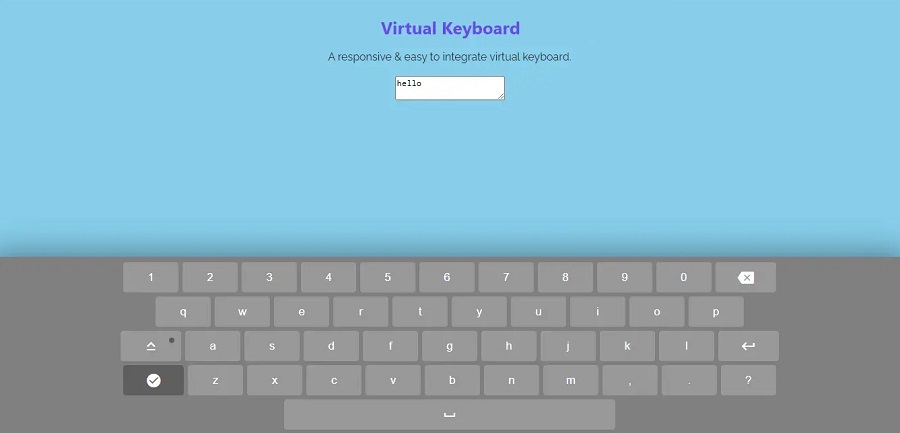
Virtual keyboards have become increasingly popular in today’s digital age. These keyboards provide users with the convenience of typing on various devices without the need for physical keyboards. JavaScript, being a versatile and widely used programming language, offers a great platform to build virtual keyboards.
In this article, we will discuss the benefits of building virtual keyboards with JavaScript and provide a free download of the source code.
Why Build Virtual Keyboard with JavaScript?

Accessibility
One of the key reasons for building a virtual keyboard with JavaScript is to enhance accessibility for users. Virtual keyboards can be beneficial for individuals with physical disabilities or impairments that make it challenging to use a physical keyboard. By providing a virtual keyboard, websites and applications become more inclusive and enable a wider range of users to access their content.
Multi-platform Compatibility
JavaScript is a language that works seamlessly across different platforms and devices. Whether it’s a desktop computer, laptop, tablet, or smartphone, JavaScript-based virtual keyboards can be implemented without compatibility issues. This cross-platform compatibility ensures that users can enjoy a consistent typing experience regardless of the device they are using.
Customization Options
JavaScript offers extensive flexibility and customization options when it comes to building virtual keyboards. Developers can tailor the keyboard’s layout, design, and functionality to meet specific requirements. This customization empowers developers to create virtual keyboards that align with the overall look and feel of their websites or applications, enhancing the user experience.
Improved Security
Virtual keyboards built with JavaScript can help address security concerns related to keyloggers and other malicious software. Keyloggers are malicious programs that record keystrokes, potentially capturing sensitive information such as passwords or credit card details. By using a virtual keyboard, users can bypass physical keystrokes altogether, reducing the risk of such information being intercepted.
Language Support
With JavaScript, it is possible to develop virtual keyboards that support multiple languages. This feature is particularly useful in applications or websites that cater to an international audience. Users can switch between different keyboard layouts and input languages, ensuring a comfortable typing experience regardless of their preferred language.
Enhanced User Experience
Virtual keyboards can significantly improve the overall user experience. They provide a user-friendly interface, making it easier for individuals who are not familiar with the physical keyboard layout. Additionally, virtual keyboards can offer auto-suggestions, autocomplete, and other features that enhance typing speed and accuracy.
Free Download Virtual Keyboard Source Code in JavaScript
To assist developers in building virtual keyboards, we are providing a free download of the source code. The source code is written in JavaScript and can serve as a starting point for creating customized virtual keyboards for various projects.
| ABOUT PROJECT | PROJECT DETAILS |
|---|---|
| Project Name : | Virtual Keyboard In Javascript |
| Project Platform : | JavaScript |
| Programming Language Used: | php,javascript,html,css |
| IDE Tool (Recommended): | Sublime |
| Project Type : | Web Application |
| Database: | None |
| Link Download: | Download Virtual Keyboard |
Conclusion
Building virtual keyboards with JavaScript offers numerous benefits, including improved accessibility, multi-platform compatibility, customization options, enhanced security, language support, and an enhanced user experience. JavaScript’s versatility and wide adoption make it an ideal choice for developing virtual keyboards that cater to diverse user needs.
With the free download of the source code provided, developers can kickstart their virtual keyboard projects and create innovative solutions that meet the demands of today’s digital world.






